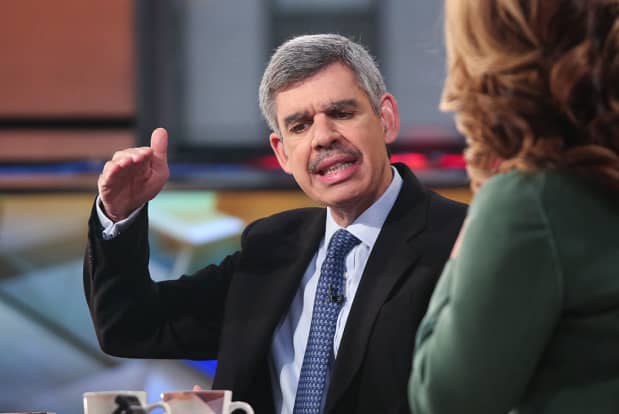This post was originally published on this site

Mohamed El-Erian
Getty Images
Investors had plenty to be thankful for last week, considering how the stock market behaved in the face of surging COVID-19 cases and some potentially troubling signs on the economic front.
By the time Friday’s closing bell marked the end of the holiday-shortened stretch, the Dow Jones Industrial Average DJIA, +0.12% had racked up a stellar gain of 2.2% to close at 29,910.37 after having closed above 30,000 earlier in the week for the first time ever. The S&P 500 SPX, +0.24% and Nasdaq Composite COMP, +0.92% also banged out record highs.
“ ‘You should worry about a reckoning longer term.’ ”
Mohamed El-Erian, president of Queens’ College University of Cambridge and economic adviser to Allianz, isn’t so sure the bull run will last.
“I can see why the market has embraced the better destination and has embraced this improvement in the journey,” he told Yahoo Finance in an interview on Friday. “But we still have quite a bumpy journey left. And I suspect we’re going to see unfortunately some companies come under a lot of pressure in the next few months.”
El-Erian acknowledged that investors are taking on risk, and that there are valid reasons to support such a move, specifically the Federal Reserve’s clear intention of remaining a backstop for the market as well as the promise of a vaccine finally putting the end of the pandemic in view.
“As long as we believe that there’s a vaccine, and as long as we believe the central banks are going to minimize all the damage to the markets, not to the economy, to the markets up to that point, what you will get is people stretching for more returns,” he explained.
But, he warned, there’s one potential problem those two factors can’t fix: bankruptcies, which he says are on the way. “I tell investors, please be careful,” he said. “Do another granular analysis because as you stretch for more yield, you take on a lot more default and bankruptcy risk. And that is not something that central banks can save you from.”
El-Erian also addressed the decoupling of the bullish run in the stock market from what’s happening in the real world. “The gap between Main Street and Wall Street is very, very large, and it is increasing,” he said. “And that’s not healthy for society, and it’s not healthy for the markets longer term. You should worry about a reckoning longer term, especially if the economy doesn’t improve quickly and validate what are very high asset crisis.”
Watch the full interview
—

